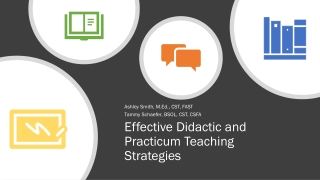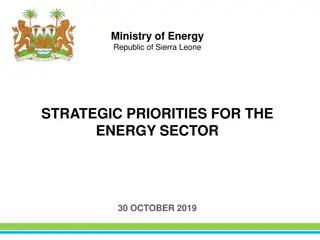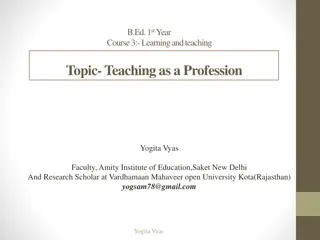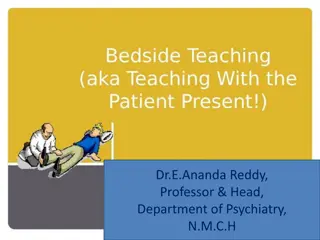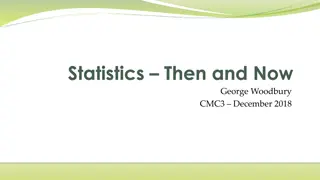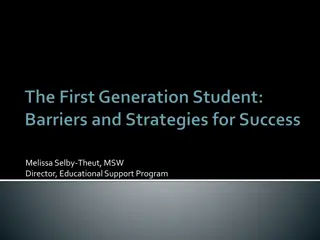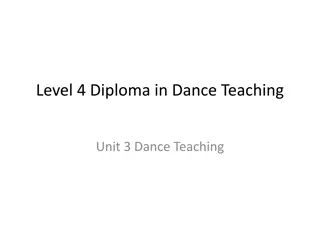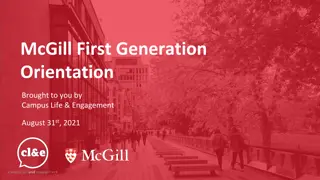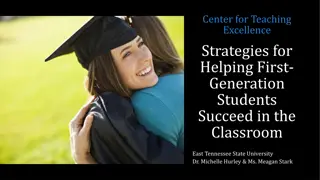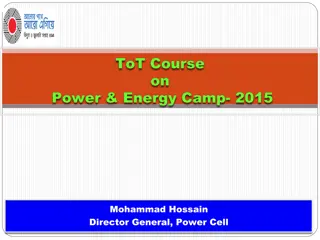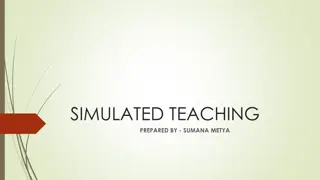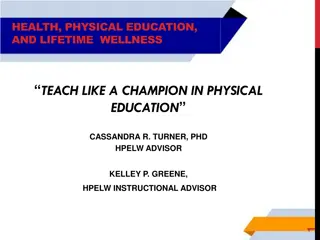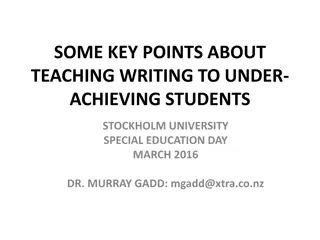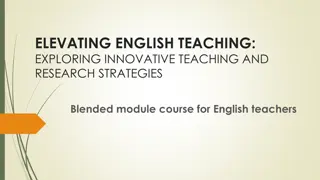Understanding and Teaching Generation Z Students: Strategies and Insights
Uncover valuable insights into Generation Z students, including defining generational cohorts, exploring characteristics, and delving into their generational experiences. Discover research-based teaching strategies, address stereotypes, and understand the impacts of technology, social media, diversity, and mental health on this unique demographic. Gain practical advice on engaging with Gen Z learners effectively in today's educational landscape.
Download Presentation

Please find below an Image/Link to download the presentation.
The content on the website is provided AS IS for your information and personal use only. It may not be sold, licensed, or shared on other websites without obtaining consent from the author. Download presentation by click this link. If you encounter any issues during the download, it is possible that the publisher has removed the file from their server.
E N D
Presentation Transcript
Teaching Gen Z Students Dr. Michael Barber
OVERVIEW 2 Defining Generational Cohorts 1 Framing the Presentation 4 Research-based Teaching Strategies 3 Characteristics of Gen Z Students 2
Stereotypes and overgeneralizations Relationships are reciprocal Principles of teaching FRAMING 4
Technology & Social Media School shootings Political polarization Protests over police brutality Marriage equality GENERATIONAL EXPERIENCES (Selingo, 2018) 7
8-10 hours of screentime per day Access to information Social media [Attention span, feedback, interpersonal skills, critical thinking, community] DIGITAL NATIVES 10
45% of undergraduates identify as people of color Global community Value relationships [Inclusive of ethnicity, culture, gender] DIVERSITY (Universities and College Designers Association, 2021) 11
Value real-world topics Want to see clear applications to life/career [Questioning, guidance and mentoring] PRACTICAL (Selingo, 2018) 12
91% report physical or emotional symptoms in past month due to stress Increase in depression and anxiety [Withdrawal, irritability, worried, motivation] MENTAL HEALTH (American Psychological Association, 2018) 13
Involve them in creating expectations Provide rationale for assignments Describe the task Explain standards of evaluation Feedback vs. criticism TRANSPARENCY 15
Defining and teaching Think aloud/modeling Asking for explanations for answers Problem-based learning CRITICAL THINKING (Harber, 2020) 16
80% prefer collaborative learning Be a guide on the side Use hands-on activities Whole-class feedback/peer review Embrace technology EXPERIENTIAL LEARNING (Barnes and Noble College, 2018) 17
Explore your culture and biases Understand other cultures Represent diversity Be sensitive to mental health Build relationships, trust, and community INCLUSIVITY 19
MODULAR CLASSROOM (Lang, 2020) 20
MODULAR CLASSROOM (Lang, 2020) 21
American Psychological Association (2018). Stress in America: Generation Z. Stress in America Survey. Barnes and Noble College. (2018). Getting to know Gen Z: Exploring middle and high schoolers expectations for higher education. https://www.bncollege.com/wp-content/uploads/2018/09/Gen-Z-Report.pdf The Best Generation Years Chart & Names List. (2022, July 12). eDigital Agency. Retrieved July 21, 2022, from https://www.edigitalagency.com.au/market-research/best-generation-years- chart-names-list/ THANK YOU!
Harber, J. (2020). Its time to get serious about critical thinking. Inside Higher Ed. Retrieved October 21, 2022 from https://www.insidehighered.com/views/2020/03/02/teaching-students-think- critically-opinion. Lang, J. M. (2020). Distracted: Why Students Can t Focus and What You Can Do About It. Basic Books. Selingo, J. (2018). The new generation of students: How colleges can recruit, teach, and serve gen z. The Chronicle of Higher Education. SOURCES
University and College Designers Association. (2021). Diversity in Higher Education: Statistics, Gaps, and Resources - 08 06-2021 : UCDA contact: Courtesy of Bradley University. https://www.ucda.com/journal/diversity-in-higher-education/ University of Massachusetts Global. (2020, May 4). 3 Generation Z traits today s teachers need to adapt to. Umassglobal.Edu. Retrieved June 14, 2022, from https://www.umassglobal.edu/news-and-events/blog/generation-z-traits-teachers- need-to-adapt-to Icons from TheNounProject.com; Pictures from UF Photography: https://ufphotography.photoshelter.com/index (photo on introductory slide is a stock PowerPoint photo from the template). SOURCES


